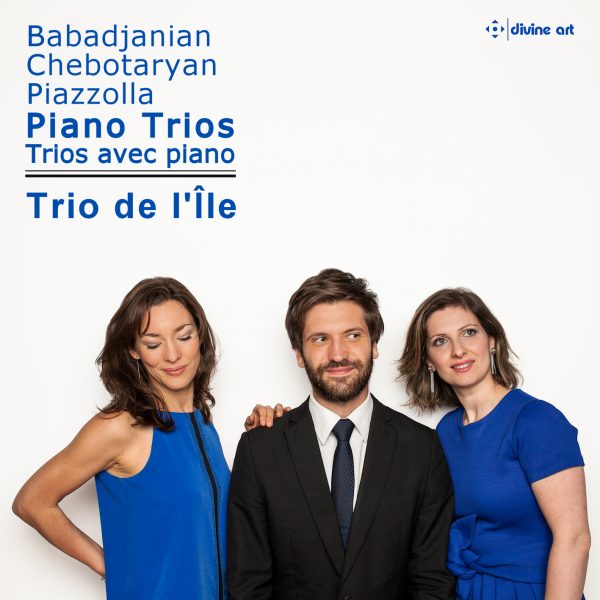American Record Guide
This is the fourth time that the trio by Arno Babadjanian, a 20th Century Armenian composer, has come my way. It is a brooding, romantic work, with a strong Rachmaninoff influence coloring the Armenian melodies, and I’m always happy to see a new recording. The Trio Aeternus’s coarse reading is out of the running. I still have the other two I’ve reviewed, so I put them all in the CD changer and had a good old-fashioned shootout.
The MSR sonics are dark, accenting the brooding; the violinist has recurring intonation problems—really the only flaw. The Potch Trio has a brighter sound, sometimes with a glare from the violin; the piano isn’t the most resonant. Their performance is good, but it now sounds careful.
The Trio de l’Ile has more fluid phrasing and the most drama though not the most mystery. The violinist struggles a little with intonation, too, but is much better than the Trio Solis’s violinist. There is a part in I that must be wicked, as it tends to snare everyone to some extent. The sonics are clear; I would prefer more plush acoustics for this ardent, glowing piece, but its other good qualities elevate it over Potch and Solis. The finale is particularly vigorous. Our Editor praised the Gelius Trio for its sweet sound; it is mellower than the recording at hand, but the excessive reverberation puts too much oil on the stormy waters.
The short, one-movement trio by Gayane Chebotaryan (1945) is closer to Khachaturian and has an even stronger folk influence. The pizzicato accompaniment to the piano melody at the opening is clever, and the diminuendo from the slow central section to the dancing coda is magical. If you’re a sucker for Armenian tunes (as I am) you’ll enjoy this charming, beautiful piece. At the risk of beating a dead horse, I will point out that the miking at this session captured a lot more reverberation, almost making the cello indistinct. Piazzolla’s Cuatro Estaciones Porteñas were scored for violin, piano, electric guitar, double bass, and bandoneon; Jose Bragato, a member of Piazzolla’s Octeto Buenos Aires, made this effective arrangement. At first it seemed a strange disc-mate, but the slow, sentimental part of ‘Primavera Portena’ reveals that it has more in common than expected with the Armenian pieces. The musicians play it with plenty of affection and expressive beauty.
@divineartrecordingsgroup
A First Inversion Company
Registered Office:
176-178 Pontefract Road, Cudworth, Barnsley S72 8BE
+44 1226 596703
Fort Worth, TX 76110
+1.682.233.4978











